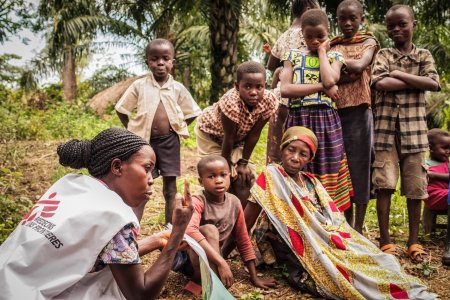
Grounds for divorce ? MSF and the international criminal court
Françoise Bouchet-Saulnier
In 1998 MSF decided to support the creation of the International Criminal Court. Whether as victims or witnesses, it seemed obvious that we should participate in this initiative in the name of the protection of populations and the construction of a ‘more just international public order'. 10 years later MSF stated that it ‘would not cooperate and would not transmit any information to the ICC'. The organisation needs to keep its distance from the ICC, as from any other political body.
How can we explain this change of position? Is it Justice or MSF that has broken its promises? What is our position regarding the arrest warrant issued in March 2009 against the President of Sudan and the consequent retaliation against NGOs working in Darfur? Françoise Bouchet-Saulnier looks back at the relations between MSF and judicial proceedings, the theme of a publication in the Cahier du Crash series in 2007 by Fabien Dubuet.
Table of contents
1. Introduction
2. Legal testimony, an extension of humanitarian advocacy
3. MSF's reaction to the creation of the International Criminal Tribunal for ex-Yugoslavia
4. Testimony of a an MSF volunteer at the International Criminal Tribunal for Rwanda
5. Why and how not to testify ?
6. The turning point of the ICC
7. MSF's position in 2004
8. The question of individual testimony
9. How does the ICC impact MSF's public communication policy?
10. Testimony and punishment
11. NGOs, Human Rights organisations and the ICC/ Comment by Kate McIntosh, MSF Holland
12. The difference between being a direct eye witness and passing on second-hand information/ Rony Brauman
13. Remain silent or testify ?
14. What are the confusions about relations between MSF and the ICC ?
15. MSF : perpetually evolving policies
16. MSF : the weak link on the international stage ?
17. Fight against impunity or punishment ?
To cite this content :
Françoise Bouchet-Saulnier, “Grounds for divorce ? MSF and the international criminal court”, 8 avril 2009, URL : https://msf-crash.org/en/conferences-debates/grounds-divorce-msf-and-international-criminal-court
If you want to criticize or develop this content, you can find us on twitter or directly on our site.
ContributePast events
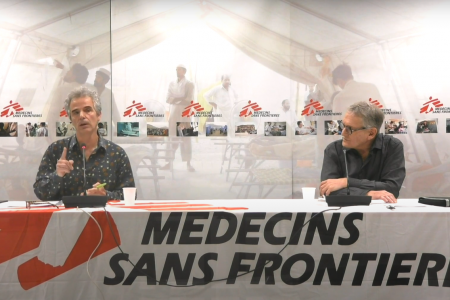 Conference
Conference
Clinical trials, between science and financial and academic interests
10/08/2020 - 04:00 PM 06:00 PMPierre Chirac, pharmacist and editor of the journal Prescrire, presented his analysis of the pharmaceutical industry's influence strategies and the special interests of university hospital researchers, their consequences on the reliability of drug information and the means now required to rectify a harmful situation.
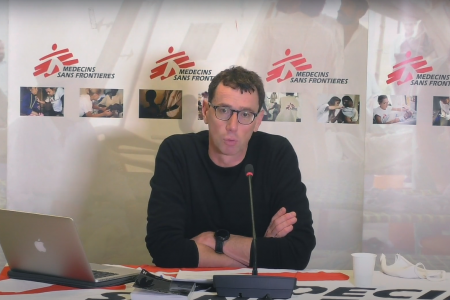 Conference
Conference
The quantification of needs
12/10/2020 - 05:00 PM 07:00 PMCombining historical research and ethnographic investigations, the Africanist historian Joël Glasman plunges us into the factory of the homo humanitarianus, the average individual, on the basis of which "needs" and aid projects today are assessed. This conversation took place on December 10th 2020, during a conference-debate at Crash.
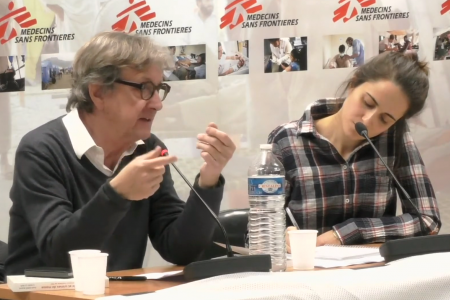 Conference
Conference
Territories: the illusion of identity
12/16/2019 - 05:00 PM 07:00 PMConference-debate on Monday 16 December 2019, 6-8pm in the 1st floor meeting room at MSF, 14-34 avenue Jean Jaurès 75019 Paris. Streaming and simultaneous translation into English available.
Can we talk about the specificities of the Middle East, Iran or the Mediterranean without reducing these territories to a culture or religion? On December 16, 2019, the CRASH team organised a conference-debate with Jean-François Bayart, a French political scientist who has devoted his work to the sociology of the State and identity illusions.
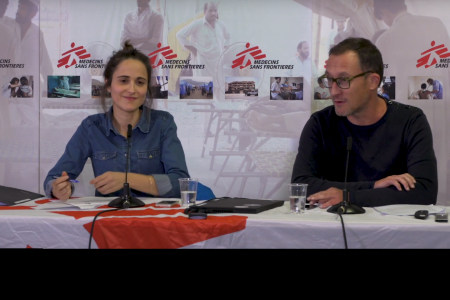 Conference
Conference
Motivations for mass violence: different interpretations
10/03/2019 - 04:00 PM 06:00 PMConference – debate, Thursday, 3 October 2019, 6-8pm, 1st floor meeting room at MSF, 8 rue Saint Sabin. Streaming and simultaneous translation into English available.
What turns ordinary men into killers? The CRASH team invited you to a conference – debate with the sociologist and historian, Nicolas Mariot, author of an article entitled « Faut-il être motivé pour tuer? Sur quelques explications aux violences de guerre » (Genèses, n°53, 2003, p. 154-177) and books such as “Face à la persécution. 991 Juifs dans la guerre" (with Claire Zalc, Paris, Odile Jacob, 2010), “Tous unis dans la tranchée ? 1914-1918, les intellectuels rencontrent le peuple" (Paris, Seuil, 2013). Nicolas Mariot presented two different interpretations of motivations for mass violence in the 20th century, drawn from a series of studies and surveys on the subject.
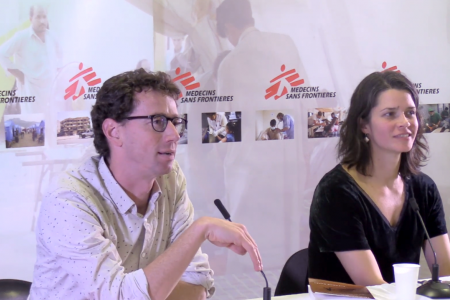 Conference
Conference
Third-Worldism and Sans-Frontiérisme 1954-1988
04/11/2019 - 04:30 PM 06:30 PMEleanor Davey, historian of ideas and humanitarianism, senior lecturer at the Humanitarian and Conflict Research Institute, University of Manchester, discusses her book, Idealism Beyond Borders. The French Revolutionary Left and the Rise of Humanitarianism, 1954-1988, devoted to the intellectual history of sans-frontiérisme and Third-Worldism, in France, from the Algerian war to the early years of Médecins Sans Frontières.
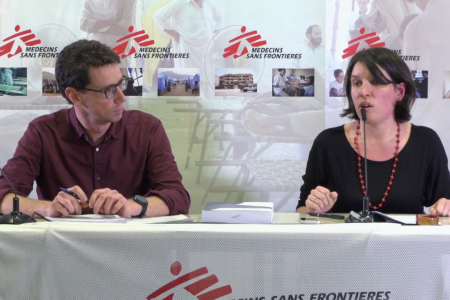 Conference
Conference
Healing foreigners in France: The State and the civil society organisations from the 80s to the 90s
12/17/2018 - 05:00 PM 07:00 PMThe CRASH team invited you to the debate-conference “Healing foreigners in France: The State and the civil society organisations from the 80s to the 90s” on Monday 17th of December 2018 from 6 to 8pm, in the 1rst floor room at the 8 rue Saint-Sabin. We hosted Caroline Izambert, who recently defended, at the EHESS, her PhD thesis focusing on the foreigners’ access to healthcare in France. Her title: “Heal foreigners?” The State and the civil society organisations for the health coverage of the poor and foreigners in France from the 1980s to the present day.

